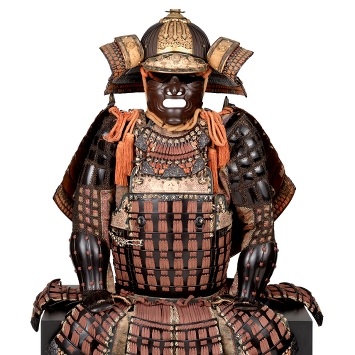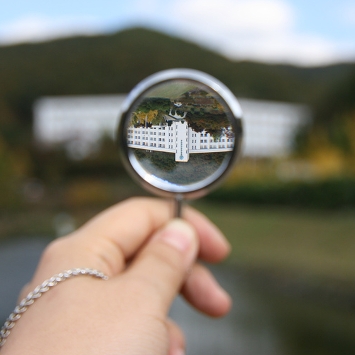People who are in dire need of approval often feel a lot of discomfort. If you are one of them, we invite you to discover some strategies to overcome this need.

Last update: January 29, 2022
All of us, to a greater or lesser extent, need our dose of external approval, as we are social beings by nature. However, there is a line that separates the healthy from the pathological and we must take this into account if we do not want to establish bonds of addiction. Let's see, therefore, how to eliminate the need for approval.
There are people who seem to have an urgent need to support their actions through others. When you are afraid of being original, genuine, in short, of being yourself, of not obtaining the approval of others, there is a problem.
It must be considered that the opinion of others is sometimes also influenced by third parties. This means that she is fickle, anonymous and extravagant.
As Steve Jobs said "let's not let the noise of other people's opinions cloud our inner voice". A wise sentence that is easy to understand, but difficult to put into practice, as we want to please others and be flattered.
Need find a balance to avoid that personal well-being depends on the opinion of others.
You need approval from birth
To understand why some adults depend on approval, we need to go back to childhood. In the early stages of life we need external approval, or that sense of security provided by attachment figures.
If we don't get their approval, we are likely to develop self-esteem problems.
If the mother tells her child that it is a disaster, she does not trust him and instead of seeing his virtues, she focuses on the defects, when she grows up she will have low self-esteem and will seek in others that approval that I have not received.
But this isn't the only cause of low self-esteem since the opinions of classmates, friends or teachers also affect.
The family is usually the most important pillar, but sometimes a child can develop and form a healthy self-esteem thanks to the approval of other important members outside the family.
According to Vernieri (2006), self-image is the positive acceptance of what is reflected in others, which is based on personal experience and self-care and which is built throughout life, from lived experiences and relationships with others.
However, it makes sense that even in adulthood some approval is sought, because it reaffirms and gives security. However, the line between the healthy pursuit of approval and the problematic one it's thin.
One way to identify which side of the line we are on is to analyze whether our decisions and behaviors vary based on external opinions.
When does the need for approval become addictive?
We could talk about addiction when we entrust the reins of our life to others, when our well-being depends on their opinions and assessments. The question would be: do we want or need the opinion of others?
Here are some alarming behaviors that may indicate that we are dependent on external approval:
- Don't give a different opinion, but try to be kind to please and not annoy the person in front of you.
- Vary your emotional state based on the opinion of others. If they compliment and approve us, we feel elated and happy, but if they criticize and disapprove of us, we feel sad and unworthy.
- Not knowing how to say "no" and do continuous favors to others before listening to our needs.
- Excessive concern about looking good. It is one thing to take care of ourselves and do it often, it is quite another to feel it as a necessity and not tolerate seeing ourselves disheveled, without makeup or with an appearance that we consider uncared for. People who don't need approval have no problem showing themselves natural.
- Don't be spontaneous or authentic for fear of rejection. If in front of society we show ourselves too perfect and we lose our naturalness and spontaneity, it could be that deep down we are afraid of being rejected. We therefore try to go unnoticed to avoid receiving criticism.
How to eliminate the need for pathological approval?
We can eliminate the need for approval by changing our thoughts and beliefs. It is not enough to understand this, but it is necessary to think deeply and believe in the following points:
We can't please everyone
Whoever you are, whatever virtue you have, everyone will never like you. There will always be people who will criticize us and they will disapprove of us, and this will happen to every human being on this planet. Therefore, the need to please everyone is impossible.
Even the most famous artists have their detractors. The Beatles, considered one of the best groups in history, not all. The same happens with Picasso, Miró, Dalí, Mondrian, Kandinsky, etc. Even with writers like Bukowski, Kerouac, Wilde.
No matter how well known we are, no matter how many followers we may have, there will always be someone who won't like what we do, and this shouldn't bother us, since taste is something subjective.
Nobody knows us like ourselves
Another misconception is to believe that others are in possession of the truth. People who need approval believe more in external opinions than in their own.
Nobody knows us as well as we do, and it often happens that wrong opinions are formed without rational basis. Therefore, we shouldn't give so much power to what others think of us, because they can be wrong. Only we ourselves are the ones who can have stable criteria of self-concept.
Make your own decisions
Whenever we have to make a decision, we should ask ourselves this question, based on what are we making this decision? Are we influenced by the opinion and wishes of others? What do we want, if we put aside social opinion? We decide according to our criteria, not according to those of others.
We are neither more nor less than anyone
We are neither more nor less valuable than others. We are all the same no matter how successful we are, our assets or our self-confidence. The only important thing is who we are, the human values that define us.
Disapproval is not the same as rejection
Usually, any criticism is taken as a contempt for our person, when in reality it is often a rejection of a taste, lifestyle, opinion, etc.
For example, someone may disapprove of another for a musical taste or for political reasons. reasons. This does not mean that they are rejecting us as a person, but that it is about disagreeing with tastes.
Maria Nieves Vera (2009), professor at the University of Granada, Spain, offers some strategies for positively accepting criticism:
- Calmly react to criticism to practice patience and learn not to feel attacked.
- Learn to control negative emotions.
- Reflect on the fact that a criticism is only an opinion and therefore must not put one's self-esteem on the line.
- Take advantage of a criticism to evaluate if it is constructive or is it an attempt at manipulation. In the first case we can learn from it, instead of ruining our relationship with the person who made it.
- If the criticism is constructive but the words are painful, we can take advantage of it and teach the person who criticized us a more correct way of expressing his opinion.
- In case they try to manipulate us, the best way to thwart the other person's plans is to react calmly.
- Reacting in an irascible way can show our weaknesses to the other person. So once again, better stay calm and relaxed. Staying calm allows us to emerge victorious from a situation that usually turns out to be unpleasant.
Often the criticism of the mistakes made is taken as a disapproval of the person. What was rejected was simply a wrong way to act, but that mistake does not define a person, as every human being makes mistakes and evolves thanks to them.
Those who do not seek it or do not need it tend to receive more approval
It seems a paradox, yet the people who don't think about approval tend to be more accepted.
The explanation for this would lie in the fact that we are usually attracted to those who show themselves authentic, although it does not coincide with our opinions.
Be yourself without seeking that approval, be authentic without worrying about outside opinion, as trying to like yourself will have the opposite effect.
Strengthen self-esteem
One of the biggest causes of the need for approval is low self-esteem. Reinforcing it will help us eliminate the need for approval.
When we think we are worth and have a positive opinion of ourselves, the disapproval will not hurt us, we will see it as something natural that happens in life.
Beyond that, we will realize that the essential thing is to believe in yourself regardless of what happens abroad.
Accept differences to eliminate the need for approval
We are not all the same, each of us has their own tastes, opinions, lifestyle, etc. Being different doesn't mean being better or worse.
We will meet opposite people with whom we will not get along, but we should never see it as disapproval, but as a difference.
Photograph courtesy of Svetlana Undalova


























